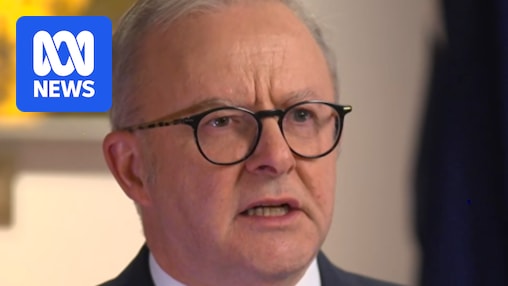
Prime Minister Anthony Albanese recently engaged with the public in a live Q&A session hosted by ABC News, addressing a wide array of topics from international sanctions to domestic policies. The session, driven by questions submitted by the public, provided insights into the government’s stance on pressing issues.
The event, which saw hundreds of questions submitted, covered critical areas such as international politics, domestic violence, and economic policies. In a brief 15-minute window, Albanese tackled as many questions as possible, offering a glimpse into the government’s priorities and challenges.
International Sanctions: A Balancing Act
One of the most pressing questions asked why Australia imposes 1,400 comprehensive sanctions on Russia but only a few individual sanctions on Israelis. Prime Minister Albanese responded by highlighting the complexity of international relations and the rationale behind the sanctions.
“We have sanctioned Israeli individuals, both people involved with settler violence in the West Bank. We’ve actually sanctioned ministers in the Israeli government,” Albanese explained. “When people put forward what essentially is a slogan, ‘sanction now’, they need to say sanction what or whom and how and what the implications of that are.”
Albanese further elaborated on the nature of the sanctions against Russia, noting the authoritarian regime’s structure as a factor for the extensive sanctions list.
“That figure of 1,400 individuals, that is probably the whole [regime], Russia is an authoritarian regime, of course, and that is probably the oligarchs and others,” he stated. “Israel is a democracy … we’ve seen the largest demonstrations about actions of the Israeli government have actually been in Israel, not here in Australia.”
Domestic Policies: Addressing Violence and Economic Concerns
On the domestic front, questions about support for domestic violence victims and economic policies were prominent. When asked about providing domestic violence victims an exemption to access the First Home Owner Scheme more than once, Albanese committed to discussing the issue with the relevant minister.
The Prime Minister was also questioned about the potential ban on gambling advertisements, a recommendation from both a government review and a Senate inquiry. He acknowledged the complexities involved, particularly concerning offshore gambling.
“What’s in our mind is practicalities of whether people just go offshore, then there’s no revenue at all. They engage in gambling with no revenue coming back at all. And it doesn’t solve the problem,” Albanese noted.
Meanwhile, the session also touched on the Petroleum Resource Rent Tax (PRRT), with questions about increasing revenue from companies benefiting from Australian resources. Albanese defended recent changes to the PRRT aimed at generating more revenue, while cautioning against creating sovereign risk by altering past agreements.
“What we’re not willing to do is to create sovereign risk. When business has investment, those decisions that have been made by past governments, you can’t just revisit to create those issues,” he said.
Childcare and Education: Calls for Reform
Questions regarding the Child Care Subsidy and its potential expansion to include co-working spaces and payments to grandparents and nannies were also raised. Albanese described the proposal as a significant shift in policy, emphasizing the economic and social considerations involved.
“That would be a very big change to the system and has been suggested by some — essentially, that parents be paid to look after their children … That would be a very big call, not just an economic call in terms of cost but it also is a very different way of looking at the way that families operate,” he remarked.
Additionally, the Prime Minister was asked about introducing commonwealth practical payments for students in health professions such as dentistry and psychology. While acknowledging the importance of the suggestion, he indicated that such proposals would be considered in future budget processes.
“These suggestions always come in and we’re up for suggestions, but they’ll feed into our budget processes,” Albanese concluded.
This interactive session with Prime Minister Albanese highlights the government’s ongoing efforts to address public concerns while balancing international and domestic priorities. As the government navigates complex issues, these dialogues offer a platform for transparency and engagement with the public.






